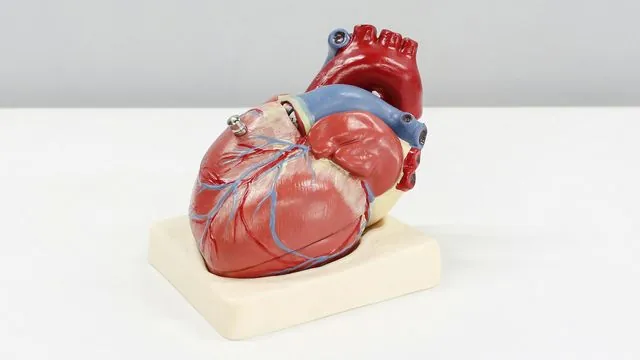
Shocking Discovery: How Your Heart's Left Atrium Could Predict Stroke and Dementia!
2025-04-02
Author: Ming
Groundbreaking Discovery from the University of Minnesota
A groundbreaking study from the University of Minnesota Medical School has unveiled a significant predictor of ischemic stroke and dementia, offering hope for enhanced patient care. This pivotal research, which has made headlines in the prestigious journal, *Stroke*, highlights a critical link between heart health and cognitive disorders.
Key Findings on Left Atrial Myopathy
The research team aimed to pinpoint which indicators of left atrial myopathy—the dysfunction of the heart's left atrium—are the most effective in forecasting the risk of ischemic stroke and dementia. To their astonishment, they found that the left atrium's ability to stretch is the strongest indicator of these severe health issues.
Expert Insights
Dr. Lin Yee Chen, a prominent figure in the study and professor at the University of Minnesota, emphasized the importance of their findings. "Our research represents a significant leap in risk prediction beyond traditional clinical assessments,” he noted. “This suggests that physicians can effectively identify patients at heightened risk, enabling more targeted monitoring and preventive strategies."
Study Details
In a thorough investigation spanning over eight years with more than 4,700 older adults, researchers meticulously tracked incidences of stroke and dementia. By evaluating various measurements of left atrial function, they discovered that only two markers significantly enhanced prediction accuracy alongside conventional risk assessment tools: the stretching capability of the left atrium and a blood protein marker known as NT-proBNP. Notably, the left atrium's distensibility—referred to as left atrial reservoir strain—turned out to be the most reliable predictor of stroke and dementia.
Future Directions
What’s next for this promising research? Dr. Chen and his team intend to embark on a multi-center clinical trial examining whether oral anticoagulants—commonly known as blood thinners—can effectively lower the risk of stroke and dementia in patients exhibiting signs of left atrial myopathy. The researchers will utilize left atrial reservoir strain as a key defining factor for atrial myopathy in their trials.
Conclusion and Anticipation
As the scientific community eagerly watches these developments, this research could fundamentally change the way we approach the prevention of stroke and dementia, potentially saving countless lives. Stay tuned for more updates on this crucial health breakthrough!

 Brasil (PT)
Brasil (PT)
 Canada (EN)
Canada (EN)
 Chile (ES)
Chile (ES)
 Česko (CS)
Česko (CS)
 대한민국 (KO)
대한민국 (KO)
 España (ES)
España (ES)
 France (FR)
France (FR)
 Hong Kong (EN)
Hong Kong (EN)
 Italia (IT)
Italia (IT)
 日本 (JA)
日本 (JA)
 Magyarország (HU)
Magyarország (HU)
 Norge (NO)
Norge (NO)
 Polska (PL)
Polska (PL)
 Schweiz (DE)
Schweiz (DE)
 Singapore (EN)
Singapore (EN)
 Sverige (SV)
Sverige (SV)
 Suomi (FI)
Suomi (FI)
 Türkiye (TR)
Türkiye (TR)
 الإمارات العربية المتحدة (AR)
الإمارات العربية المتحدة (AR)